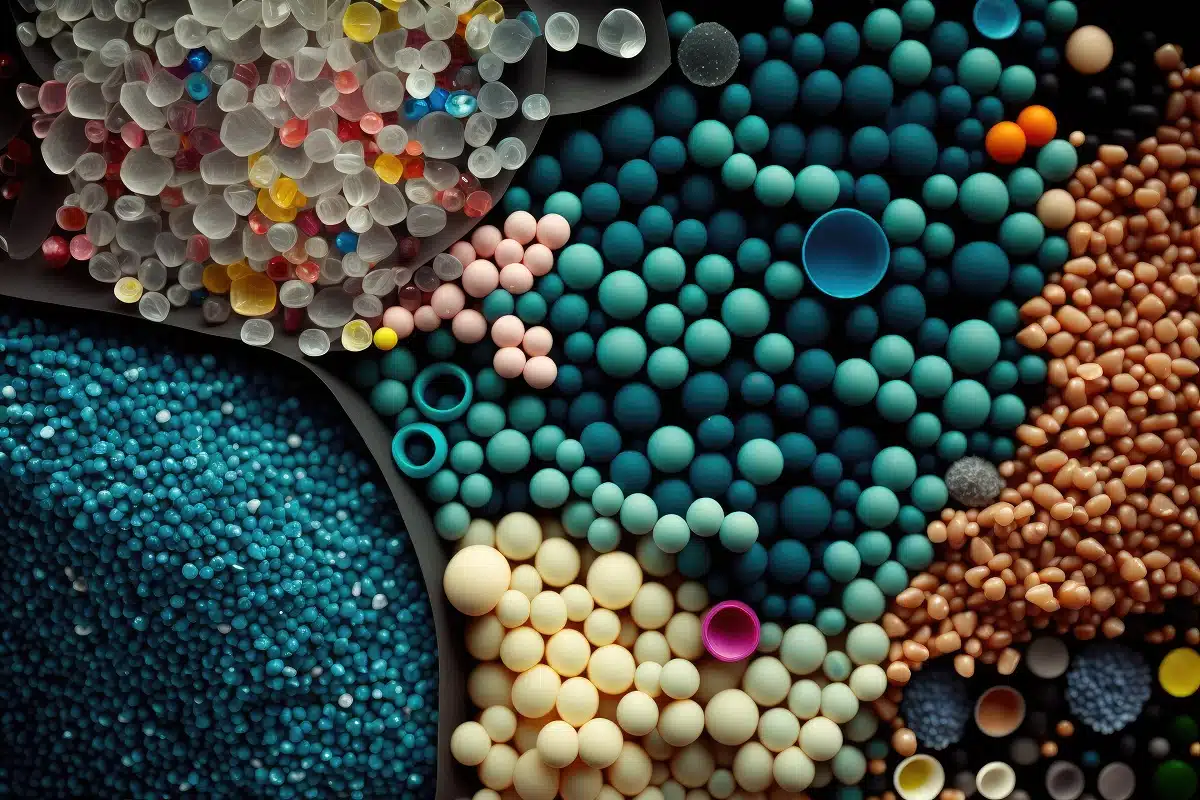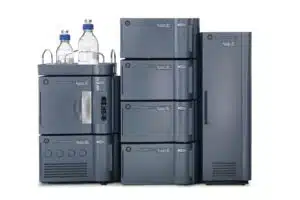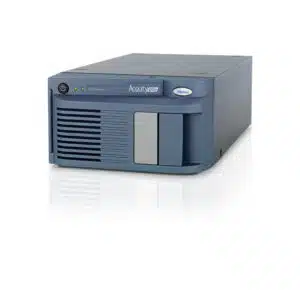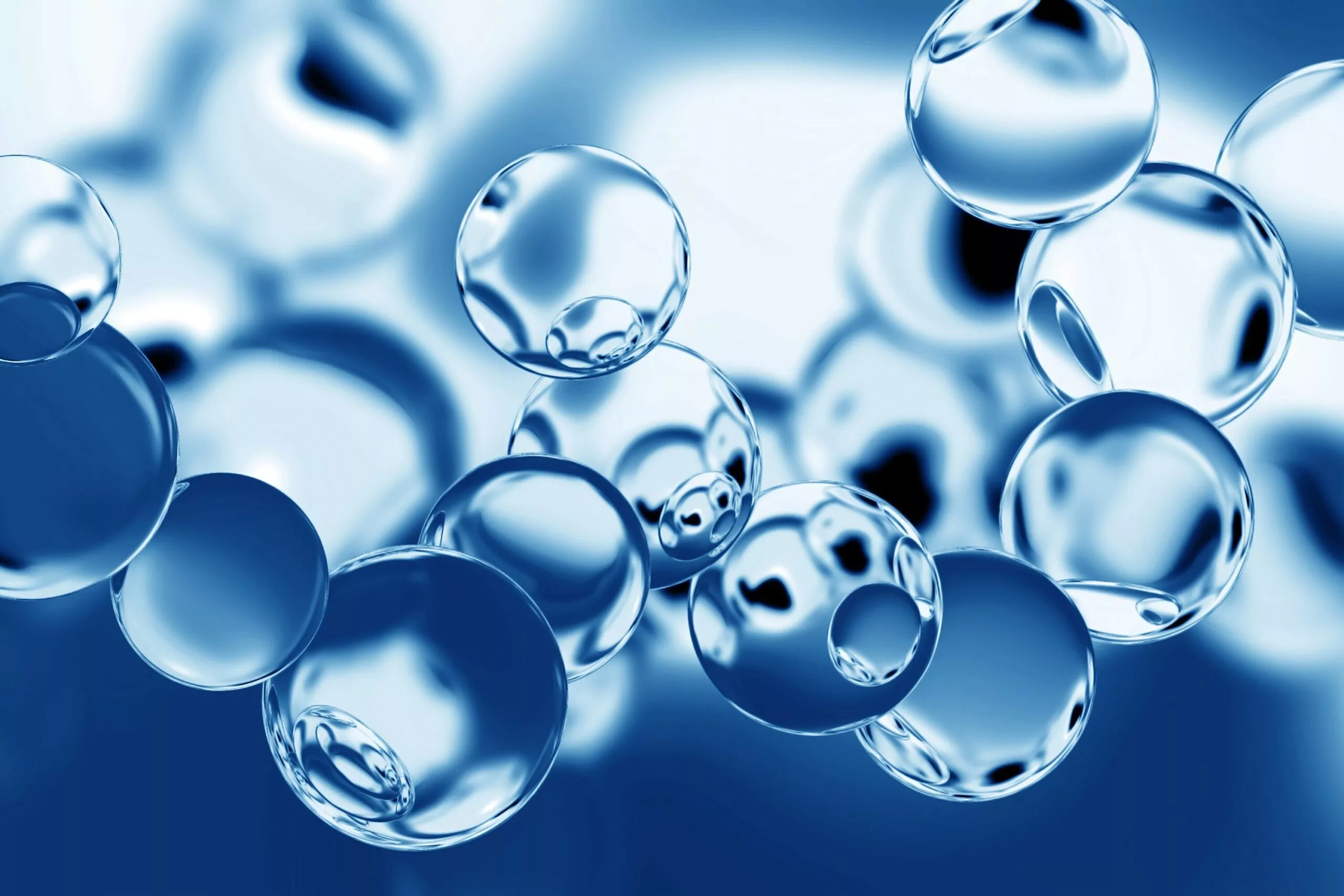Unraveling a Sustainable Future for Polymer Analysis

Polymer analysis is the study of the chemical and physical properties of polymers, large molecules made up of repeating units called monomers. This can include techniques such as molecular weight determination, chemical structure and impurities testing, and thermal analysis. Emerging analytical technologies can also be used for direct analysis of polymer constituents of volatile or non-volatile nature. This field of research is critical in understanding and improving the properties of these materials, which have a wide range of applications in industries such as packaging, textiles, construction, and transportation.
Waters is helping plastics manufacturers with the insights they need to design higher-performing biomaterials. The polymer industry increasingly recognizes the importance of sustainability, and polymer analysis is essential in developing sustainable solutions. Waters offers several techniques to promote sustainable polymer analysis ranging from thermal analyzers (TA) to gel permeation chromatography (GPC) and mass spectrometry (MS). Comprehensive analytical testing solutions for polymeric materials from Waters play a vital role in ensuring the safety and quality of the products that billions of people rely on every day, including food, water, pharmaceuticals, cosmetics, and materials.
Analytical chemistry for a safer environment
We are also helping scientists develop materials that can save energy. Waters advanced polymer chromatography (ACQUITY Advanced Polymer Chromatography (APC) System paired with ACQUITY APC Columns™) offers several distinct advantages for lab scientists. The pairing will:
- Speed up analysis by up to 20 times as compared to traditional SEC/GPC
- Use significantly fewer solvents for the analysis
- Reduce the complexity of operation and equipment footprint concerns
- Ultimately will lower the cost of analysis per sample

Simplifying polymer characterization
Two techniques are increasingly used in sustainable polymer analysis: GPC and MS.
GPC, also known as size exclusion chromatography (SEC), is a technique that separates polymer molecules based on their size, for determining molecular weight (MW) distribution. With this information, labs can understand polymer properties and develop new, sustainable solutions, like reducing resource waste in production and maximizing the chance to utilize recycled polymer materials.
With MS, it is possible to characterize the composition and structure of polymer molecules and combine this technique with GPC/SEC for more comprehensive analysis, like identifying and quantifying the presence of impurities, additives, and low MW species in a polymer sample – all of which are critical for polymer sustainability. MS can also be used to analyze the breakdown products of polymers during recycling and biodegradation, which can provide insight into the sustainability of these processes.
While advanced MS instruments are critical for the research and development stages, for routine analytical testing, small footprint quadrupole mass spectrometers such as the Waters ACQUITY QDa Detector™ are best suited to address the cost, complexity of operation and size concerns while meeting polymer analysis requirements. The significantly smaller footprint of the ACQUITY QDa Detector is ideal, making MS more accessible and easier to use than ever.

Advantages to single system analysis
GPC and MS are extremely valuable in polymer analysis, but they’ve traditionally been performed as separate steps on distinct analytical instruments, adding significant cost and complexity. By combining GPC and MS into a single system, polymer analysis can be more efficient and cost-effective. Waters scientists tested a single system approach, demonstrating how an ACQUITY APC System, combined with the Waters ACQUITY UPLC Refractive Index (RI) Detector™ and the Waters ACQUITY QDa Detector, can accelerate polymer analysis by accurately measuring polymer MW distribution and detecting polymer additives simultaneously.
This approach is highly beneficial as it:
- Eliminates the need for multiple instruments
- Reduces sample preparation steps
- Increases the accuracy and precision of the analysis
Additionally, by using a single system for GPC and MS analysis, labs can:
- Obtain both MW and chemical information of the polymer in one run, for a more complete understanding of the polymer properties. This can be particularly useful in identifying and quantifying the presence of impurities, additives, and low MW species in a polymer sample.
- Manage and deliver the correlation of MW with chemical structure, providing valuable insight into the relationship between polymer properties and sustainability.
Helping our customers to solve their toughest problems and reduce environmental impact
Overall, polymer analysis is a complex and multifaceted application that plays a vital role in advancing the properties and sustainability of these materials. Waters analytical solution for routine polymer analysis combines the benefits of the ACQUITY APC system with the ACQUITY UPLC Refractive Index (RI) Detector and ACQUITY QDa Detector in a single system, and enables accelerated qualitative and quantitative analyses of both MW and additive concentrations in minutes per sample. This efficient and cost-effective analytical configuration allows for fast, invaluable information useful for the development of more environmentally sound and sustainable solutions in the polymer industry. These are ways in which Waters continues to meet the challenges of the future.
References
- ACQUITY Advanced Polymer Chromatography System Brochure, 720006774.
- Pyrolysis-Gas Chromatography-High Resolution Mass Spectrometry with Soft Ionization for Increased Confidence of Polymer Characterization, 720007599.
- Direct Real-Time Analysis of Volatile Organic Compounds From Biobased Plastics Using Soft Ionization ACQUITY QDa Mass Detection, 720007504.
- RADIAN ASAP for Simple Mass Spectral Screening of Polymer Formulations, 720007270.
- A Consolidated Approach for Analytical Testing of Recycled Industrial Plastics, 720007813.
- A single system for the characterization of molecular weight distribution and additives in polymers, 720006818.
- A New Strategy for Confident Characterization of Extractables from Post-consumer Recycled Plastics Using LC-QToF, 720007837.
- ACQUITY QDa Detector Instrument Capabilities, 720006797.
- Lo K., Ritchie M., Sato N. 2020. A Single System for the Characterization of Molecular Weight Distribution and Additives in Polymers. Waters Corporation application note, 720006818.
Additional Resources:
Blog: Mass Spectrometry Gains Popularity for Polymer Analysis
Blog: New ACQUITY Premier Solution Reduces Variability for Metal-Sensitive Analytes
Popular Topics
ACQUITY QDa (16) bioanalysis (11) biologics (14) biopharma (26) biopharmaceutical (36) biosimilars (11) biotherapeutics (16) case study (16) chromatography (14) data integrity (21) food analysis (12) HPLC (15) LC-MS (21) liquid chromatography (LC) (19) mass detection (15) mass spectrometry (MS) (54) method development (13) STEM (12)


